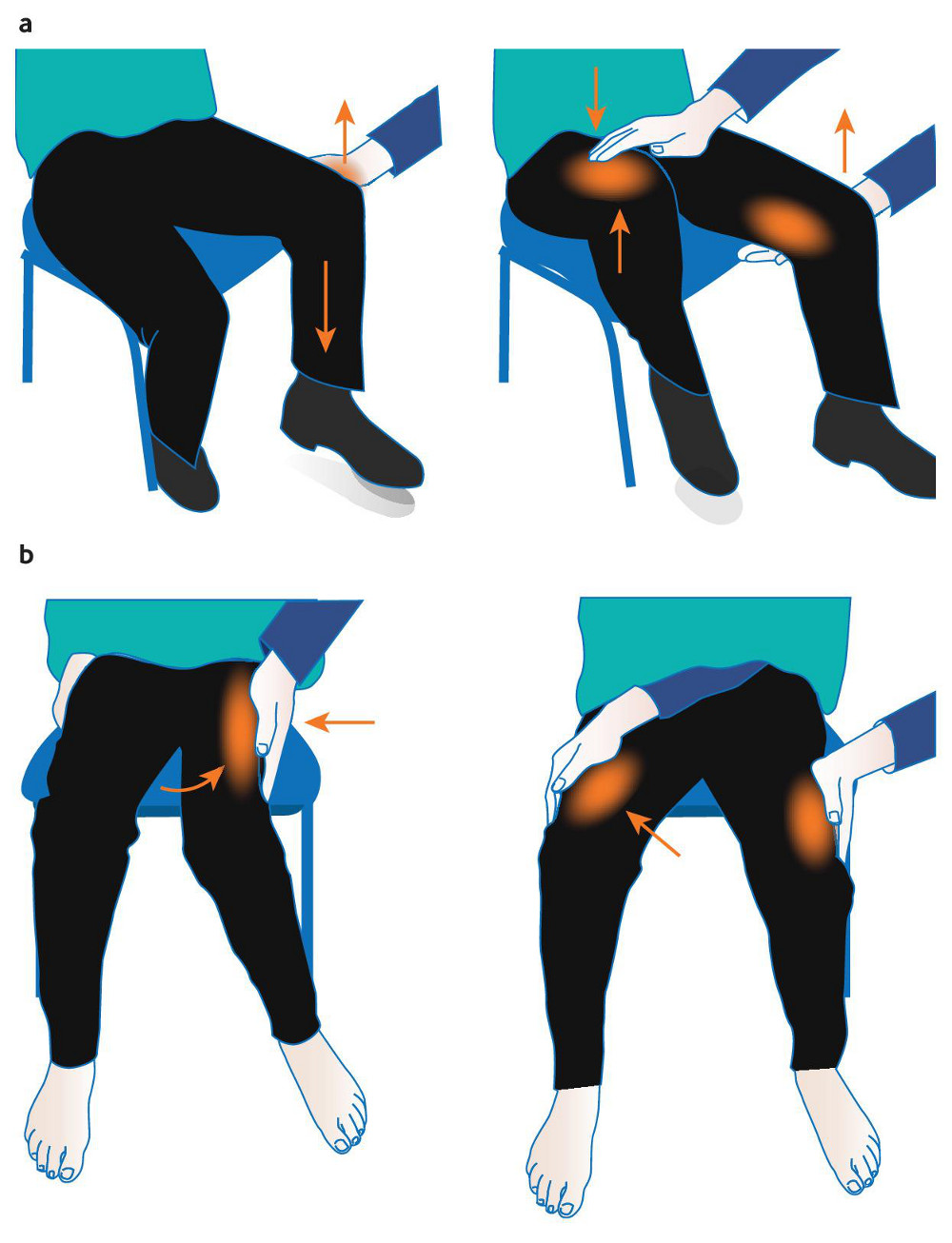Resumo
Definição
História e exame físico
Principais fatores diagnósticos
- comportamento não convencional durante a anamnese
- problemas de processamento emocional
- estressores psicológicos ou físicos recentes
- estressores remotos da vida
- vários comportamentos típicos da doença
- deficits neurológicos incomuns
- sensação de fraqueza
- achados inconsistentes do exame físico
- achados sensoriais paradoxais
- sintomas de distração
- movimentos motores do tipo convulsão generalizada sem perda de consciência
- anormalidades da marcha
- distúrbios funcionais do movimento
Outros fatores diagnósticos
- queixas cognitivas
- sinal de Hoover
- distúrbio da fala
- distúrbio de deglutição
- pseudoclônus
- espasmo de convergência
Fatores de risco
- história de abuso sexual ou físico
- eventos adversos na infância
- história de transtornos relacionados a trauma
- sexo feminino
- alexitimia
- neuroticismo
- relações anteriores ruins entre médico e paciente
Investigações diagnósticas
Primeiras investigações a serem solicitadas
- exames laboratoriais
- eletroencefalograma (EEG)
Investigações a serem consideradas
- testes neuropsicológicos abrangentes
- teste padronizado de personalidade
- inventários focados em sintomas
Algoritmo de tratamento
transtorno neurológico funcional
transtorno de sintomas somáticos
Colaboradores
Autores
Cynthia M. Stonnington, MD

Professor of Psychiatry
Mayo Clinic
Scottsdale
AZ
Declarações
CMS is an author of a number of references cited in this topic.
Erika Driver-Dunckley, MD

Professor of Neurology
Mayo Clinic
Scottsdale
AZ
Declarações
EDD declares that she has no competing interests.
Katherine H. Noe, MD, PhD

Associate Professor of Neurology
Mayo Clinic
Scottsdale
AZ
Declarações
KHN declares that she has no competing interests.
Dona Locke, PhD

Professor of Psychology
Mayo Clinic
Scottsdale
AZ
Declarações
DL declares that she has no competing interests.
Revisores
David Perez, MD, MMSc
Psychiatrist and Assistant Neurologist
Massachusetts General Hospital
Associate Professor of Neurology and Psychiatry
Harvard Medical School
Boston
MA
Declarações
DLP has received honoraria for continuing medical education lectures in functional neurologic disorder, research funding for the NH and Sidney R. Baer Jr. Foundation, and royalties from Springer Nature for a textbook on functional movement disorder. DLP has also previously published with the BMJ and is on the editorial board of Epilepsy & Behavior. DLP is the author of a number of papers cited in this topic.
James L Levenson, MD
Rhona Arenstein Professor of Psychiatry
Virginia Commonwealth University
Virginia
Declarações
JLL declares that he was the unpaid text editor for the sections of DSM 5 and DSM 5-TR covering the two diagnoses listed in the topic.
Anton Scamvougeras, MBChB, FRCP
Consultant Neuropsychiatrist and Associate Clinical Professor
Department of Psychiatry
University of British Columbia
Vancouver
British Columbia
Canada
Declarações
AS declares that he has no competing interests. AS is the author of one paper cited in the topic.
Referências
Principais artigos
Perez DL, Aybek S, Popkirov S, et al; American Neuropsychiatric Association Committee for Research. A review and expert opinion on the neuropsychiatric assessment of motor functional neurological disorders. J Neuropsychiatry Clin Neurosci. 2021 Winter;33(1):14-26.Texto completo Resumo
Löwe B, Levenson J, Depping M, et al. Somatic symptom disorder: a scoping review on the empirical evidence of a new diagnosis. Psychol Med. 2022 Mar;52(4):632-48.Texto completo Resumo
Stone J, Burton C, Carson A. Recognising and explaining functional neurological disorder. BMJ. 2020 Oct 21;371:m3745.
Bennett K, Diamond C, Hoeritzauer I, et al. A practical review of functional neurological disorder (FND) for the general physician. Clin Med (Lond). 2021 Jan;21(1):28-36.Texto completo Resumo
den Boeft M, Claassen-van Dessel N, van der Wouden JC. How should we manage adults with persistent unexplained physical symptoms? BMJ. 2017 Feb 8;356:j268. Resumo
Henningsen P, Zipfel S, Herzog W. Management of functional somatic syndromes. Lancet. 2007 Mar 17;369(9565):946-55. Resumo
Artigos de referência
Uma lista completa das fontes referenciadas neste tópico está disponível para os usuários com acesso total ao BMJ Best Practice.

Diagnósticos diferenciais
- Transtorno de ansiedade de doença
- Transtorno dismórfico corporal
- Transtorno factício
Mais Diagnósticos diferenciaisDiretrizes
- A review and expert opinion on the neuropsychiatric assessment of motor functional neurological disorders
- Evidence-based practice for the clinical assessment of psychogenic nonepileptic seizures
Mais DiretrizesConectar-se ou assinar para acessar todo o BMJ Best Practice
O uso deste conteúdo está sujeito ao nosso aviso legal